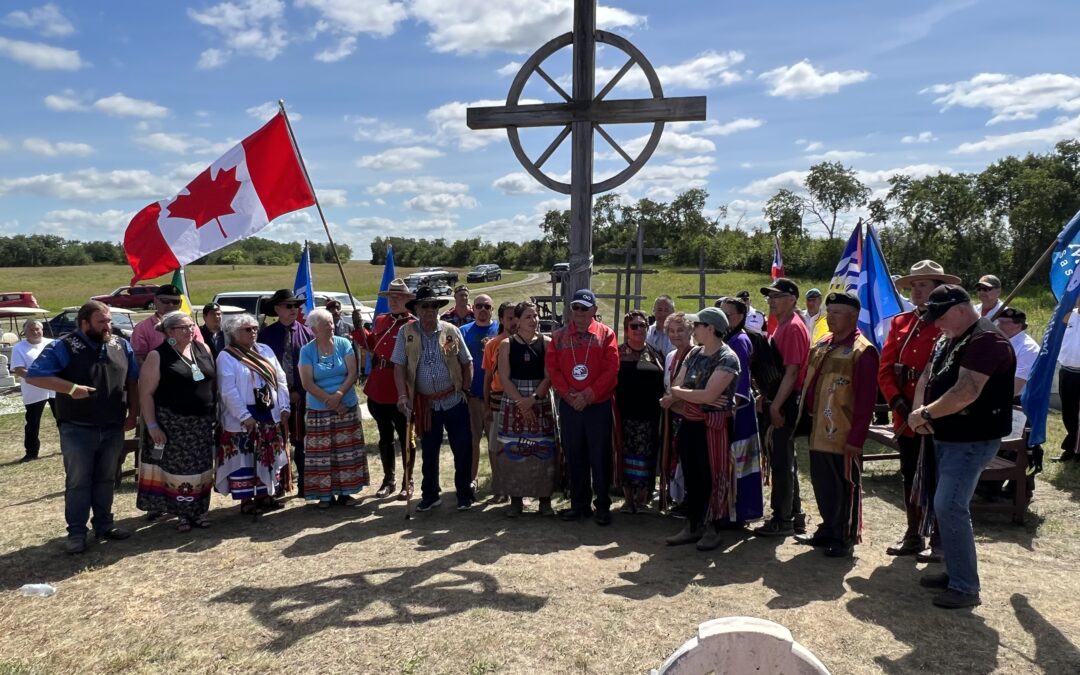2023 was a year full of determination and community involvement for the Metis Nation-Saskatchewan.
Metis self-governance has been talked about for almost a century now and MN-S pushed hard in trying to speed up the passing of Bill C-53 this year.
In February MN-S took another step toward self-governance when President Glen McCallum and Marc Miller, Minister for Crown-Indigenous Relations, signed an updated MN-S Self-Government Recognition and Implementation Agreement. That agreement set out a renewed roadmap for moving forward and created a solid foundation for building a stronger government-to-government relationship between MN-S and Canada. Bill C-53 is currently at the Senate before it goes to the House of Commons, after that McCallum hopes it will be passed.
MN-S hosted many cultural and community-centred events and ceremonies this year.
Back to Batoche Days began over 50 years ago in 1970 and is the largest outdoor celebration of Métis identity, culture, values, and language in the world. From July 20-23 around 20,000 people headed to the celebration at Batoche and engaged in cultural teachings, live music, sports and more.
The theme for Back to Batoche Days in 2024 will be “Nations coming together”.
“When the resistance happened in Batoche there were First Nations that were standing beside us, Metis and First Nations were standing together and we can never forget that and that’s the other reason why it’s important for nations to come together,” said McCallum.
MN-S also hosted a ceremony on November 8 for Indigenous Veterans Day at Batoche Festival Grounds to honor Indigenous veterans nation-wide. The ceremony included Metis veteran speakers, wreath laying, and a drumming performance done by drummers from One Arrow First Nation.
Metis Nation-Saskatchewan has also been working hard over the last few years to create more agreements and build stronger relationships with federal and provincial governments, and the University of Saskatchewan through Memorandums of Understanding.
In November 2019, MN–S and USask signed a MOU to formalize, expand, and enhance their relationship to try and improve upon the education status of Métis people through several diverse and targeted initiatives. Since then, MN-S and USask signed another MOU in 2021 and this year in February MN-S, Usask and Johnson Shoyama Graduate School of Public Policy committed a combined $1,130,000 over four years to support the establishment of a JSGS Research Chair in Métis Governance and Policy, which is the first of its kind in the country.
During the MN-S Fall Legislature Assembly in November MN-S signed two MOUs with the provincial government. The first MOU was signed between MN-S and the Saskatchewan Firearms Office. This MOU focused on increasing the number of firearms licenses that are provided using the MN-S citizenship registry and promoting firearm safety and education.
“It’s our job as leaders of the provincial Metis Council and this assembly, it’s our obligation to our citizens to be able to engage with the government,” explained McCallum. “It’s our job to connect, its our job to plan, and its our job to deliver and we have, and we will continue to do so.”
The second MOU was between the Saskatchewan Public Service Commission and MN-S and aimed to expand and enhance Metis presence in the provincial government.
Another big win for MN-S was when Bison were reintroduced to Metis lands in November through an agreement between MN-S and Parks Canada. Last year Parks Canada and MN-S signed an MOU to transfer 25 bison from Grasslands National Park to establish a new herd near Batoche National Historic Site.
“Welcoming the bison back to Batoche holds enormous cultural significance for Métis people in this province,” stated MN-S Vice President Michelle LeClair in a media release. “Our youth will see a tangible demonstration of Métis tradition and values as our Elders help provide invaluable land-based education.”
In November MN-S created the Let’s Play (Maatawaytaak) Program designed to provide families with Metis children financial support for extra curricular activities. The goal is to promote healthy growth and development, get children active and involved in their culture and/or community. Eligible families can receive up to $500.
“When we look at our small communities in our province, when we do something right and our families are happy and we’re winning, the individuals win, small communities win, big cities win, provinces win and Canada wins,” said McCallum.
Overall, it was a very successful year for MN-S fueled by partnership, community, and culture.
(Photo supplied by the Metis Nation-Saskatchewan. With files from Abel Charles.)
